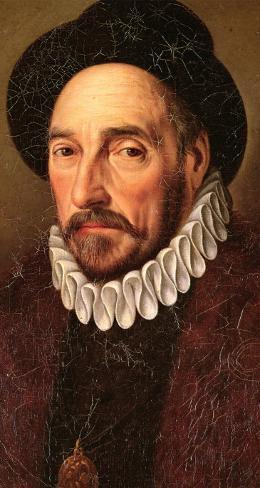
In the collected Essays, that masterpiece of self-analysis, the 16th century French essays Michel Eyquem de Montaigne began as a stoic and ended as a skeptic. The more carefully he pursued knowledge, the less he knew.
“What do I know? And what does it matter?” captures the standard Montaigne response to everything. We cannot know anything, since reason is not sufficient to determine a naturalistic ethics or establish a redoubtable theology.
“Reason does nothing but go astray in everything, and especially when it meddles with divine things.”
He was resigned to say “it may be and it may not be,” with such disillusionment and cynicism, including his awareness that relativity is ubiquitous, that there are no absolutes.
The most popular of his essays, Apology for Raymond Sebond, clearly expressed his profound skepticism. On the surface it defended a Spanish theologian, but it is actually about human flaws and failures. We think we are so much better than animals, just because of human reason, but for all our philosophies, not one single rational theory has been able to reveal one simple universal truth. We cannot even know what is.
Man is stark raving mad; he cannot make a lowly maggot, yet he invent gods by the dozens.